United Kingdom
The British Empire was the leading economic power for most of the 19th century, a position supported by its agricultural prosperity, its role as a dominant trading nation, a massive industrial capacity, significant technological achievements, and the rise of 19th-century London as the world's principal financial centre.By the end of the region's prehistoric period, the population is thought to have belonged largely to a culture termed Insular Celtic, comprising Brittonic Britain and Gaelic Ireland.During this period, particularly in England, the development of naval power and the interest in voyages of discovery led to the acquisition and settlement of overseas colonies, particularly in North America and the Caribbean.[78] By the late 19th century, the Conservatives under Benjamin Disraeli and Lord Salisbury initiated a period of imperial expansion in Africa, maintained a policy of splendid isolation in Europe, and attempted to contain Russian influence in Afghanistan and Persia, in what came to be known as the Great Game.[81] The Edwardian era saw social reform and home rule for Ireland become important domestic issues, while the Labour Party emerged from an alliance of trade unions and small socialist groups in 1900, and suffragettes campaigned for women's right to vote.Britain had still not recovered from the effects of the First World War when the Great Depression (1929–1932) led to considerable unemployment and hardship in the old industrial areas, as well as political and social unrest with rising membership in communist and socialist parties.[105] The UK was the third country to develop a nuclear weapons arsenal (with its first atomic bomb test, Operation Hurricane, in 1952), but the post-war limits of Britain's international role were illustrated by the Suez Crisis of 1956.[113] Following a period of widespread economic slowdown and industrial strife in the 1970s, the Conservative government of the 1980s led by Margaret Thatcher initiated a radical policy of monetarism, deregulation, particularly of the financial sector (for example, the Big Bang in 1986) and labour markets, the sale of state-owned companies (privatisation), and the withdrawal of subsidies to others.CAs allow a group of local authorities to pool appropriate responsibility and receive certain devolved functions from central government in order to deliver transport and economic policy more effectively over a wider area.The devolved form of government in Northern Ireland is based on the 1998 Good Friday Agreement, which brought to an end a 30-year period of unionist-nationalist communal conflict known as The Troubles.[387] Although a majority of citizens still identify with Christianity in surveys, regular church attendance has fallen dramatically since the middle of the 20th century,[388] while immigration and demographic change have contributed to the growth of Islam and other faiths.It is not subject to state control, and the British monarch is an ordinary member, required to swear an oath to "maintain and preserve the Protestant Religion and Presbyterian Church Government" upon his or her accession.[428] The culture of the United Kingdom is influenced by the nation's island status, its history, and being a political union of four countries with each preserving distinctive traditions, customs and symbolism.[432] Britain is renowned for children's literature, writers includes Daniel Defoe, Rudyard Kipling, Lewis Carroll and Beatrix Potter who also illustrated her own books.[435] Twelve of the top 25 of 100 novels by British writers chosen by a BBC poll of global critics were written by women; these included works by George Eliot, Virginia Woolf, Charlotte, Emily Brontë, Mary Shelley, Jane Austen, Doris Lessing, and Zadie Smith.[443] Irish writers, living at a time when all of Ireland was part of the United Kingdom, include Oscar Wilde,[444] Bram Stoker,[445] and George Bernard Shaw.[446] There have been many authors whose origins were from outside the United Kingdom but who moved to the UK, including Joseph Conrad,[447] T. S. Eliot,[448] Kazuo Ishiguro,[449] Sir Salman Rushdie,[450] and Ezra Pound.[452] The most famous philosophers of British Empiricism are John Locke, George Berkeley[y] and David Hume; while Dugald Stewart, Thomas Reid, and William Hamilton were major exponents of the Scottish "common sense" school.[454] In the second half of the 19th century, as Arthur Sullivan and his librettist W. S. Gilbert wrote their popular Savoy operas, Edward Elgar's wide range of music rivalled that of his contemporaries on the continent.Increasingly, however, composers became inspired by the English countryside and its folk music, notably Gustav Holst, Ralph Vaughan Williams, and Benjamin Britten, a pioneer of modern British opera.Among the many post-war composers, some of the most notable have made their own personal choice of musical identity: Peter Maxwell Davies (Orkney), Harrison Birtwistle (mythological), and John Tavener (religious).[455] Recent classical singers include: Alfie Boe, Bryn Terfel, Katherine Jenkins, Michael Ball, Roderick Williams, Russell Watson, and Sarah Brightman, while Nicola Benedetti and Nigel Kennedy are renowned for their violin ability.[466] The modern UK produces some of the most prominent English-speaking rappers along with the United States, including Stormzy, Kano, Yxng Bane, Ramz, Little Simz, and Skepta.[468][469][470][471] Other prominent British contributors to popular music over the last 50 years include the Rolling Stones, Pink Floyd, Queen, Led Zeppelin, the Bee Gees, and Elton John, all of whom have worldwide record sales of 200 million or more.[473] More recent UK music acts that have had international success include George Michael, Oasis, Spice Girls, Radiohead, Coldplay, Arctic Monkeys, Robbie Williams, Amy Winehouse, Susan Boyle, Adele, Ed Sheeran, Lewis Capaldi, One Direction, Harry Styles, and Dua Lipa.In the late 80's, dance music exploded with Rave culture mainly Acid House tracks which were made mainstream with novelty records (such as Smart E's Sesame's Treet and the Prodigy's Charly)[481] and the Balearic sound brought back from the Ibiza club scene.Influential UK dance acts past and present include 808 State, Orbital, the Prodigy, Underworld, Roni Size, Leftfield, Massive Attack, Groove Armada, Fatboy Slim, Faithless, Basement Jaxx, Chemical Brothers, Sub Focus, Chase & Status, Disclosure, Calvin Harris, and Fred Again.A 2019 YouGov poll rated classic British food, with more than 80% of eaters liking: Sunday roast, Yorkshire pudding, fish and chips, crumpets, and full English breakfast.[513] The UK publishing sector, including books, directories and databases, journals, magazines and business media, newspapers and news agencies, has a combined turnover of around £20 billion and employs 167,000 people.[526][527] England, Scotland, Wales, Ireland, France, and Italy compete in the Six Nations Championship, which is the premier international rugby union tournament in the northern hemisphere.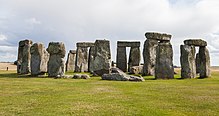







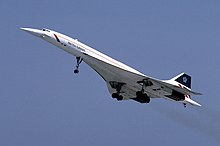

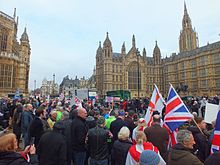


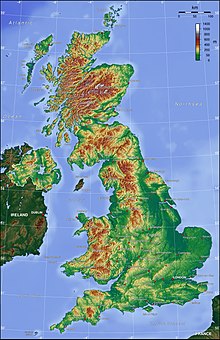















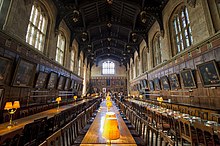




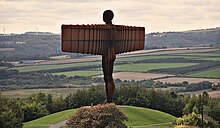




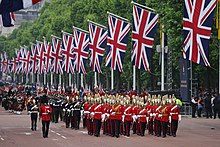

United Kingdom (disambiguation)UK (disambiguation)God Save the KingCoats of armsBritish Overseas TerritoriesCrown Dependenciesits exclusive economic zonesLondonNational languageEnglishUlster ScotsCornishScottish GaelicBritish Sign LanguageEthnic groupsno religionHinduismSikhismBuddhismJudaismDemonym(s)BritishBritonGovernmentMonarchCharles IIIPrime MinisterKeir StarmerParliamentUpper houseHouse of LordsLower houseHouse of CommonsFormationLaws in Wales ActsUnion of the CrownsTreaty of UnionActs of Union of England and ScotlandActs of Union of Great Britain and IrelandIrish Free State Constitution ActPopulationPound sterlingDrives onCalling codeISO 3166 codeInternet TLDNorthwestern Europethe continental mainlandEnglandScotlandNorthern IrelandGreat BritainIrelandthe smaller islandsBritish Islesa land borderRepublic of IrelandAtlantic OceanNorth SeaEnglish ChannelCeltic SeaIrish Seawhose wider metropolitan areaWestern EuropeEdinburghCardiffBelfastNeolithicRoman conquest of BritainRoman departureAnglo-Saxon settlementthe Normans conquered EnglandWars of the Rosesannexation of WalesBritish EmpireEnglish Civil WarKingdom of EnglandKingdom of ScotlandKingdom of Great BritainActs of Union 1800Kingdom of IrelandUnited Kingdom of Great Britain and IrelandsecededIrish Free StateRoyal and Parliamentary Titles Act 1927foremost powerPax Britannicaeconomic powerits agricultural prosperitytrading nationsignificant technological achievements19th-century Londonits involvement in the First World Warthe Second World WarBritain's economic powerdecolonisationconstitutional monarchyparliamentary democracyEngland and Walesdevolveddeveloped countryan advanced economylargest economies by nominal GDPlargest exportersimportersnuclear statehighest military budgetspermanent member of the UN Security CouncilCommonwealth of NationsCouncil of EuropeFive EyesIts influenceits former coloniesits culturein languageliteraturemost widely spoken languagethird-most spoken native languageBritain (place name)Terminology of the British IslesActs of Union 1707partition of IrelandcountriesNUTS 1 regionsterm "Britain"UK Government
